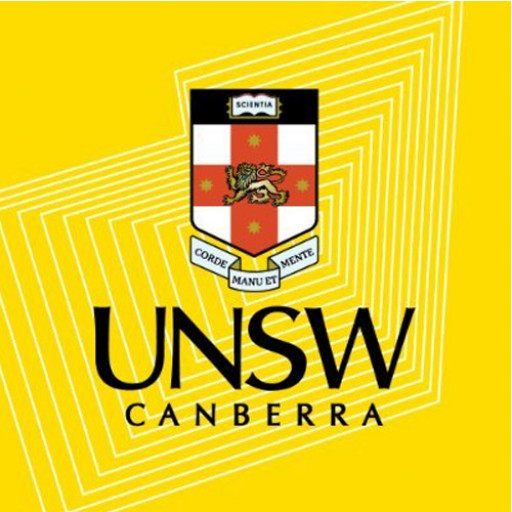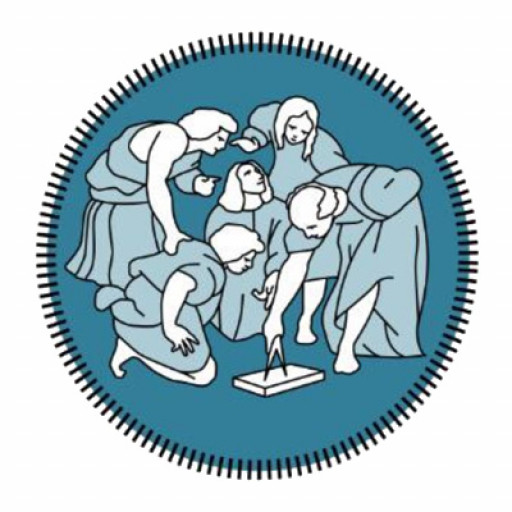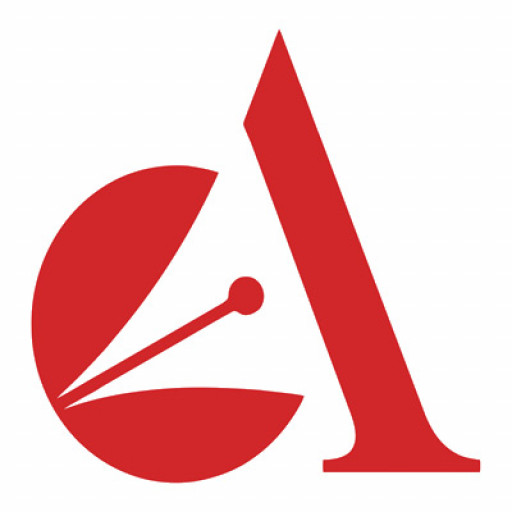Photos of university / #riceuniversity
The Rice University Space Studies program offers a comprehensive and interdisciplinary education designed to prepare students for dynamic careers in the rapidly evolving field of space exploration and technology. Rooted in the university's renowned expertise in science, engineering, and policy, the program provides a unique blend of coursework, research opportunities, and practical experience aimed at equipping students with the knowledge and skills necessary to address the complex challenges of space missions, satellite development, space policy, and commercialization.
Students enrolled in the Space Studies program have access to cutting-edge facilities and collaborate with leading experts in aerospace engineering, astrophysics, planetary science, space policy, and mission design. The curriculum covers fundamental topics such as spacecraft design, orbital mechanics, remote sensing, space weather, and systems engineering, along with interdisciplinary subjects including space law, ethics, and commercial space enterprise. This diverse curriculum ensures graduates are well-prepared for careers in government agencies, private firms, research institutions, and startups involved in space-related activities.
The program emphasizes hands-on learning through internships, project-based coursework, and opportunities to participate in mission simulations and research projects. These experiences enable students to develop critical problem-solving skills, technical proficiency, and strategic thinking applicable to real-world scenarios in space exploration and operations. Furthermore, the program encourages interdisciplinary collaboration, fostering innovation and leadership in the ever-expanding commercial and governmental space sectors.
Graduate students benefit from Rice University's strong connections with the space industry, government agencies such as NASA, and international partners. They are mentored by faculty with extensive experience in scientific research, engineering, and policy development. The program aims to cultivate a new generation of space professionals who are not only technically proficient but also socially responsible and capable of shaping sustainable space policies.
As the field of space studies continues to grow, Rice University’s program remains committed to fostering an inclusive environment that promotes diversity, equity, and global perspectives. The program prepares students to contribute meaningfully to the exploration, understanding, and utilization of outer space for the benefit of humanity, advancing scientific discovery and supporting the commercialization of space endeavors. Whether students aspire to pursue careers in academia, industry, or public service, the Rice University Space Studies program provides a rigorous, innovative, and supportive educational environment to achieve their goals.
Students pursuing the MSSpS degree must complete:
- A minimum of 15 courses (39 credit hours) to satisfy degree requirements.
- A 3-6 month internship. Students must present a summary of their internship project in both oral and written form as part of the professional master's seminar.
- A minimum of 30 credit hours at the 500-level or above.
CORE REQUIREMENTS
Students must complete a total of 12 courses (30 credit hours) as listed below to satisfy the MSSpS degree's Core Requirements.
Required Cohort Courses
Students must complete the following 5 courses (9 credit hours):
- NSCI 501 Master Seminar (required for 1 semester) [ 1 credit hour ]
- NSCI 502 Space Studies Seminar Course [ 1 credit hour ]
- NSCI 511 Science Policy and Ethics [ 3 credit hours ]
- NSCI 512 Internship Project [ 1 credit hour ]
- NSCI 610/ENGI 610 Management for Science and Engineering [ 3 credit hours ]
Core Technical Courses
Students must complete the following 3 courses (9 credit hours):
- ASTR 570 Solar System Physics [ 3 credit hours ]
- STAT 615 Intro to Regression and Statistical Computing [ 3 credit hours ]
- MECH 572 Aerospace Systems Engineering [ 3 credit hours ]
Core Science Electives
Students must complete a total of 2 courses (6 credit hours) from the following:
- ASTR 554 Astrophysics of the Sun [ 3 credit hours ]
- BIOC 415 Experimental Physiology [ 1 credit hour ]
- BIOC 540/CHBE 640 Metabolic Engineering [ 3 credit hours ]
- ESCI 540 Earth's Atmosphere [ 3 credit hours ]
- ESCI 660 Geological and Geophysical Fluid Dynamics [ 3 credit hours ]
- MECH 554/BIOE 554/CEVE 554 Computational Fluid Mechanics [ 3 credit hours ]
Statistics/Computation Courses
Students must complete a total of 2 courses (6 credit hours) from the following. Depending on the background, other courses can be chosen with permission of advisor.
- CAAM 453 Numerical Analysis I [ 3 credit hours ]
- CEVE 528/ENGI 528 Engineering Economics [ 3 credit hours ]
- ESCI 650 Remote Sensing (not available every year) [ 3 credit hours ]
- MECH 554/BIOE 554/CEVE 554 Computational Fluid Mechanics [ 3 credit hours ]
- PHYS 416 Computational Physics [ 3 credit hours ]
- STAT 310/ECON 307 Probability and Statistics [ 3 credit hours ]
- STAT 605 R for Data Science [ 3 credit hours ]
- STAT 502/COMP 502/ELEC 502 Neural Machine Learning I [ 3 credit hours ]
- STAT 541 Multivariate Analysis [ 3 credit hours ]
- STAT 640 Data Mining and Statistical Learning [ 3 credit hours ]
ELECTIVES
Students must complete a total of 3 courses (9 credit hours) from one of the following areas, depending on the student's individual interests and career goals.
Focus: Engineering
Students pursuing a focus area in Engineering must complete a total of 3-4 courses (9-12 credit hours) from the following:
- CEVE 504 Atmospheric Particular Matter [ 3 credit hours ]
- CEVE 505/ENGI 505 Eng. Project Development& Management [ 3 credit hours ]
- CEVE 511 Atmospheric Processes [ 3 credit hours ]
- CEVE 576/MECH 576 Structural Dynamics and Control [ 3 credit hours ]
- COMP 498/ELEC 498/MECH 498 Intro to Robotics [ 3 credit hours ]
- MECH 454/BIOE 454/CEVE 454 Computational Fluid Mechanics [ 3 credit hours ]
- MECH 572 Aerospace Systems Engineering [ 3 credit hours ]
- MECH 591 Gas Dynamics [ 3 credit hours ]
- MECH 599 Current Topics [ 3 credit hours ]
- MECH 691 Hypersonic Aerodynamics [ 3 credit hours ]
Focus: Sciences (Astro Science/Earth Science/Life Sciences)
Students pursuing a focus area in Sciences must complete a total of 3 courses (9 credit hours) from the following. Focus areas in earth science, physics and life sciences can be chosen, depending on student’s background. Students will consult with academic advisor about appropriate selection of their elective science courses.
- ASTR 542 Nebular Astrophysics [ 3 credit hours ]
- ASTR 554 Astrophysics of the Sun [ 3 credit hours ]
- ASTR 555 Protostars and Planets [ 3 credit hours ]
- ASTR 565 Compact Objects [ 3 credit hours ]
- BIOC 524 Microbiology and Biotechnology [ 3 credit hours ]
- BIOC 540/CHBE 640 Metabolic Engineering [ 3 credit hours ]
- BIOC 544 Advanced Concepts and Critical Analysis in Modern Developmental Biology [ 3 credit hours ]
- BIOC 545 Advanced Molecular Biology and Genetics [ 3 credit hours ]
- BIOC 570 Computation with Biological Data [ 3 credit hours ]
- BIOC 580/BIOE 580/CHBE 580 Protein Engineering [ 3 credit hours ]
- ESCI 540 Earth's Atmosphere [ 3 credit hours ]
- ESCI 581 Topics in Planetary Dynamics and Magmatic Processes [ 2 credit hours ]
- ESCI 667 Geomechanics [ 3 credit hours ]
- ESCI 672 Numerical Methods Earth System [ 3 credit hours ]
Focus: Management
Students pursuing the focus area in Management must complete a minimum of 9 credit hours from the following:
- MGMT 601 Financial Statement Analysis [ 3 credit hours ]
- MGMT 618 Complexities of People and Organizations [ 1.5 credit hours ]
- MGMT 619 Corporate Governance [ 1.5 credit hours ]
- MGMT 629 Business Plan Development [ 1.5 credit hours ]
- MGMT 658 Applied Risk Management [ 1.5 credit hours ]
- MGMT 734 Technology Entrepreneurship [ 3 credit hours ]
NOTE: Courses vary. Some listed courses may not be offered every year, and others may be offered that satisfy the requirements with pre-approval. Students should consult with their academic advisors before enrolling.
THREE TO SIX MONTH INTERNSHIP
Practical experience may be conducted under the guidance of a host company, government agency, or national laboratory. A summary of the internship project is required in both oral and written form as part of NSCI 512 Professional Master's Project.
- Completed application (apply on-line)
- Three personal letters of recommendation - recommenders can now submit their letters on-line
- General GRE scores (use the code 6609 for Rice; do not worry about a department code)
- Official transcripts from all universities attended
- TOEFL scores (if required)
The Space Studies program at Rice University offers students multiple avenues for financing their education to ensure access regardless of financial background. Undergraduate students can apply for need-based financial aid, which includes federal and state grants, scholarships, and loan programs. The university’s Office of Financial Aid provides comprehensive guidance on the application process for federal aid programs such as the Pell Grant and Direct Loans, which are available to eligible students. Additionally, Rice University offers merit-based scholarships that recognize academic excellence, leadership, and commitment to space studies; these scholarships often cover partial to full tuition and are awarded based on merit during the admissions process or through special scholarship competitions.
Students in the Space Studies program are encouraged to seek external scholarships from aerospace industry organizations, such as the American Institute of Aeronautics and Astronautics (AIAA), which periodically offers scholarships and fellowships for students pursuing aerospace-related fields. Internship opportunities related to space research and industry partnerships can often provide stipends or stipends combined with academic credit, reducing the cost of education and enhancing practical experience. The university’s strong connections with industry partners facilitate internships at organizations like NASA, private aerospace companies, and research institutions, which may also offer financial support or stipends.
Graduate students enrolled in advanced Space Studies programs can access assistantships, research fellowships, and teaching opportunities that provide a source of income to offset tuition costs. These positions are highly competitive but are a significant form of financial support for eligible students. Additionally, many students supplement their funding through external loans and private scholarships tailored to STEM and space science students.
Rice University also encourages students to explore federal research grants and partnerships that support space research projects, which may include stipends or funding for graduate research assistants. Financial planning services offered by the university assist students in developing a sustainable approach to financing their education, including budgeting advice, loan counseling, and scholarship searches. Overall, the program’s comprehensive approach to financial support aims to minimize economic barriers and enable qualified students to pursue their interests in space studies at Rice University.
The Rice University offers a comprehensive programme in Space Studies designed to prepare students for careers in the rapidly expanding field of space exploration and technology. The programme encompasses a multidisciplinary approach, integrating fields such as astrophysics, aerospace engineering, planetary science, and space policy. Students gain a solid foundation in the fundamental principles of space science and engineering, alongside specialized knowledge in areas such as orbital mechanics, satellite technologies, and space mission design. The curriculum is designed to foster both theoretical understanding and practical skills, providing opportunities for hands-on experience through laboratories, research projects, and internships with space agencies or private aerospace companies. Core courses typically cover physics, mathematics, and engineering principles tailored to space applications, along with electives that focus on current topics like spacecraft navigation, remote sensing, and space law. The programme emphasizes research and innovation, encouraging students to participate in cutting-edge projects and collaborations. Graduates of the programme are well-equipped to pursue careers in aerospace industry roles, scientific research, or advanced studies, including graduate or doctoral programmes. The university’s proximity to Houston, home to NASA’s Johnson Space Center, offers unique advantages, including access to internships, guest lectures, and collaborative research opportunities. The Space Studies programme is ideal for students passionate about exploring the cosmos, developing new space technologies, or contributing to space policy and management. Alumni of the programme have gone on to successful careers in government agencies, private aerospace firms, research institutions, and academia, reflecting the programme's comprehensive preparation and industry connections.









